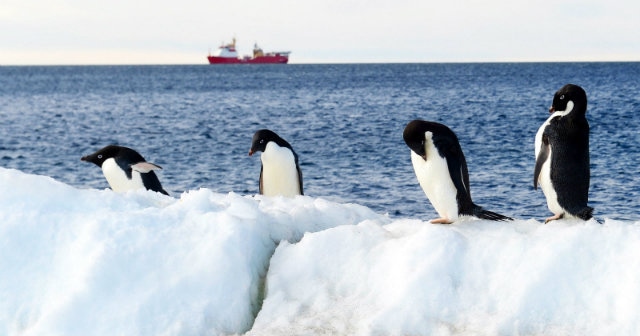
SANTIAGO – As the planet battles the seemingly inexorable spread of the coronavirus, Antarctica remains the only COVID-19-free continent — thanks in the main to strict security and not a little luck.
The natural isolation of the frozen and desolate expanse has been taken to new extremes since the WHO declared a pandemic on March 11.
Authorities canceled all tourism, evacuated non-essential personnel, and prohibited contacts between the international ice stations.
“We are isolated within this natural isolation that we already have,” Alejandro Valenzuela, the maritime governor of Chile’s Antarctic territory, told AFP by phone.
Strict new health protocols were quickly put in place and visits limited to vital supplies.
Chile has cut its Antarctic staff to a minimum, maintaining a skeleton force of 10 navy personnel at its Escudero military base in Bahia Fildes on the South Shetlands.
The harsh environment has always demanded close cooperation between various international missions.
Nearby is one of five Russian bases, as well as missions from Uruguay, Korea and China. Provisions are often unloaded and loaded together and recreation areas shared.
There were sports competitions and mutual invitations for national day celebrations and birthday parties.
But the fear of the coronavirus has put an end to all physical contact between the bases.
LUCKY BREAK
Antarctica caught a lucky break when the start of the crisis coincided with the end of the tourist season, which brings around 50,000 visitors a year on cruise ships to view penguins and seals in the pristine environment.
The last tourist ship arrived in Bahia Fildes on March 3, just when the first case of infection was reported in Chile.
And the continent dodged a bullet when an inward bound Australian tour ship, the Greg Mortimer, was forced to turn back when the first cases of COVID-19 were discovered aboard, an outbreak which eventually affected nearly all 217 passengers and crew.
From April, as the austral winter closes in and sun becomes a memory, weather conditions prevent all but essential travel to and from the continent, isolating personnel even further.
The declaration of a pandemic made controls even tighter, said Valenzuela.
“Supplies are sanitized before they can be brought in and contact with the ship is minimal. People stay on board and we don’t have direct contact now,” he said.
Strict hygiene controls are also now in place at Chile’s Eduardo Frei Air Base. The maximum number of people allowed to eat at a table in the canteen at any one time is limited to four, and sports activities in the gym and indoor recreation dome are suspended.
A YEAR IN ISOLATION
Uruguay cut staff at its Artigas base to just nine people, after recently evacuating 10 non-essential personnel.
“The next turnover will be in the first fortnight of December, so the people left there will spend all winter there,” Rear Admiral Manuel Burgos, president of the Uruguayan Arctic Institute, told AFP.
The Uruguayans who stayed behind, like the Chilean marines, will have no contact with the other bases.
“We are very conscious of what we are experiencing. We assume it with a resolve and we don’t let ourselves get down,” said Valenzuela, who arrived in Antarctica in November for a stint that will last a full year.
The spirit among those there is strong. So much so, Valenzuela said, “that now we are the ones sending messages of encouragement to our families.”



